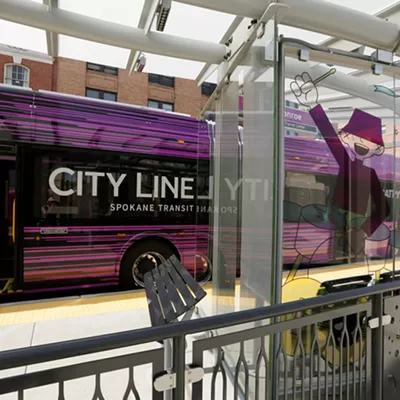Do you support a woman’s right to vote? If you do, you can thank, in part, the good work that was done by local initiatives more than 100 years ago that helped pressure our federal government to adopt the 19th Amendment to the Constitution.
Sometimes that’s the best way to move the country forward. But sometimes it isn’t. Take for example the two proposed local citizen initiatives known as the Community Bill of Rights and the Voter Bill of Rights. They may sound great, but if you look closer you find poor policies that will backfire.
Two of the four Community Bill of Rights planks are already addressed in state or federal law. How do we know? Spokane has firsthand experience with them. The Community Bill of Rights purports to bestow rights on the river and aquifer, but those protections are already contained in the Clean Water Act. In 2011, the City Council approved a settlement that minimizes the threat of toxic PCBs in the Spokane River.
The second plank has to do with collective bargaining. Our state has tough laws in support of collective bargaining. How do we know? Because in 2010 City Council voted to institute a Spokane Police Ombudsman with full investigatory power and saw that action overturned by our state Public Employee Relations Commission.
The third plank, which grants veto power for neighborhoods to reject zoning changes for buildings over 10,000 square feet, might be the most problematic. It’s important to have great neighborhoods where citizens can walk to services and organizations. But do you want to pass a measure that would allow a small group of folks to potentially block not just a commercial building, but a new school, a new church or even new affordable housing? The state gives authority on land use decisions to local elected officials for a reason — to ensure accountability and to consider the needs of the entire community.
The last plank of the Community Bill of Rights and the Voter Bill of Rights contain some similarities. They both are inspired by the poorly received U.S. Supreme Court Citizens United decision. While we may disagree with that decision and support action to change it, both these ballot measures create more problems than solutions. The Voter Bill of Rights forbids corporations to have communication with elected officials in anything but a public meeting when discussing legislation. Nonprofits would also be subject to this tenet. Currently, two city councilmembers own their own corporations. Would they still be able to talk to their fellow councilmembers? Good government relies on more communication, not less.
While we disagree with and don’t support either initiative, we do support the initiative process. We did not support a resolution last week that would have asked the Mayor to use taxpayer money to litigate the initiatives before they were seen by voters. We understand the citizens behind these measures are seeking greater transparency and citizen involvement in government, but if they really want to focus on change, a great place to put their energy is in our local candidate races.
If we have the right people in office, working together to consider all citizens, we can work for collaborative solutions that give our region the best chance to move forward.
Jon Snyder and Amber Waldref are members of the Spokane City Council. Ben Stuckart is the Spokane City Council president.
















